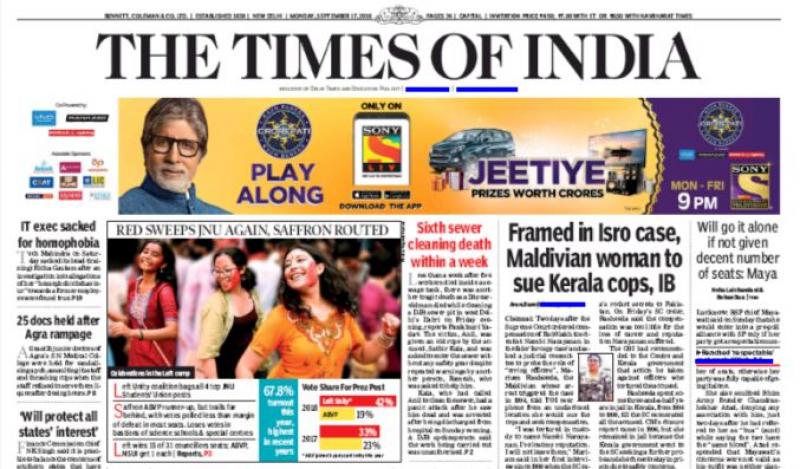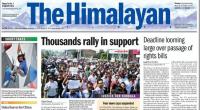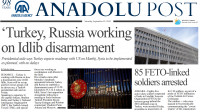 Left Unity, an alliance of four groups (AISA, SFI, DSF AND AISF), won all four central panel and 15 councillor posts, the results of which were announced on Sunday, with N Sai Balaji of AISA defeating Lalit Pandey (ABVP) by a huge margin of 1,179 votes for the post of president.
Left Unity, an alliance of four groups (AISA, SFI, DSF AND AISF), won all four central panel and 15 councillor posts, the results of which were announced on Sunday, with N Sai Balaji of AISA defeating Lalit Pandey (ABVP) by a huge margin of 1,179 votes for the post of president.
Left Unity routed its rivals comprehensively in the other three top posts as well, with Sarika Chowdhury (SFI) winning the vice-president’s post with a 52% vote share. Aejaz Ahmed Rather of DSF and Amutha Jayadeep of AISF are the new general secretary and joint secretary, respectively.
The resounding victory for the Left came amid a massive voter turnout of 67.8%, 9 percentage points higher than last year. The elections were marred with tussles, allegations of rigging, a 15-hour blockade and a night full of rumours of violence.
Calling the results a victory for unity of students against the “fascist JNU administration”, Balaji said: “This election has shown the true face of ABVP and the administration which is anti-democratic. Since there are no EVMs here like DU, they tried to disturb the counting process and falsely accused the neutral EC.”
The new president, a PhD student at the School of International Studies, has been in JNU since 2014. Hailing from Hyderabad, he did his under-graduation from Institute of Management Studies, Noida.
On ABVP terming the Left Unity an “alliance of compromise”, Balaji said their coalition was that of like-minded students “who want to defeat the ABVP, which wants to turn the campus into ‘Lynchistan’.”
Reacting to the results, the saffron group said they has achieved a “moral victory” in the elections.
All four panel candidates of the Left Unity were voted to power by close to 40% vote share. The lowest margin of victory (800 votes) was in the joint secretary’s election, where Jayadeep polled 39.6% of the votes while ABVP’s Venkat Chaubey got 24%.
Balaji polled 2,161 votes to defeat his closest rival from ABVP who polled 982. BAPSA’s Praveen Thallapelli got 675 votes. Interestingly, Chattra RJD too made its mark in its maiden elections with its presidential candidate Jayant Kumar polling 540 votes.
Balaji promised that he would ensure there are no problems in research due to fund cuts. “The reservation policy must be implemented and the Rs 515 crore loan taken by the university administration must be opposed.”
The victory was particularly sweet for the Left as a majority of left-leaning outfits came together with a single point agenda of defeating the ABVP, which is aligned ideologically with the BJP. In 2016, arch rivals AISA and SFI had come together in the backdrop of the February 9, 2016 ‘anti-national’ sloganeering incident on campus. The alliance has grown since then, with two other groups (DSA and AISF) joining it.
One of the highlights of this year’s election was the erosion of support for ABVP in the science schools and special centres, which were considered saffron bastions. This year, Pandey polled 378 votes while Balaji got 335 votes — just 43 votes less — from these schools.
“The Left would never get these many votes from the science schools as they have this year. This is because of the support ABVP gave to Atul Johri, the professor accused of sexually harassing students of the science schools,” said Mohit Pandey, former JNUSU president.
This was corroborated by the new vice president Sarika Chowdhury who said she took lead in the science schools “as many came out to vote in anger against the ABVP and its tacit support to Atul Johri.”
However, the win for the Left did not come easy. While counting was held up for nearly 15 hours on Saturday, the Left camp said its cadres were roughed up in the university. Former AISA general secretary Satarupa Chakraborty and JNU student Sumitran were allegedly beaten up on Saturday night, after counting had resumed.
 Leads Of The World
Leads Of The World
41387 hour(s) 53 minute(s) ago ;
Morning 06:47 ; Monday ; Jul 07, 2025
The Times of IndiaJNU painted red, yet again, as Left bags all 4
Send
Bangla Tribune Desk
Published : 21:45, Sep 17, 2018 | Updated : 21:50, Sep 17, 2018
Published : 21:45, Sep 17, 2018 | Updated : 21:50, Sep 17, 2018
0 ...0 ...
/hb/
Topics: Top Stories
- KOICA donates medical supplies to BSMMU
- 5 more flights to take back British nationals to London
- Covid19: Rajarbagh, Mohammadpur worst affected
- Momen joins UN solidarity song over COVID-19 combat
- Covid-19: OIC to hold special meeting
- WFP begins food distribution in Cox’s Bazar
- WFP begins food distribution in Cox’s Bazar
- 290 return home to Australia
- Third charter flight for US citizens to return home
- Dhaka proposes to postpone D8 Summit
Unauthorized use of news, image, information, etc published by Bangla Tribune is punishable by copyright law. Appropriate legal steps will be taken by the management against any person or body that infringes those laws.
Bangla Tribune is one of the most revered online newspapers in Bangladesh, due to its reputation of neutral coverage and incisive analysis.
F R Tower, 8/C Panthapath, Shukrabad, Dhaka-1207 | Phone: 58151324; 58151326, Fax: 58151329 | Mob: 01730794527, 01730794528


